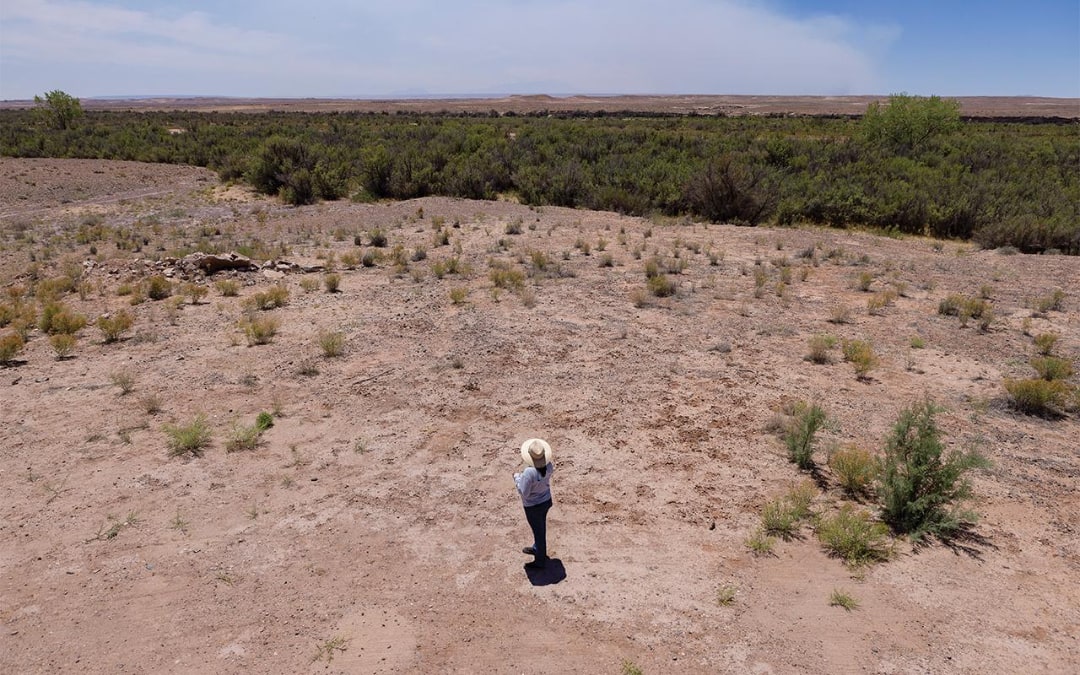Alongside Rotary and the nonprofit DigDeep, the Navajo are bringing a vital commodity to their ancestral homeland
By Geoffrey Johnson Photos by Julia Rendleman
If there were one place on the planet impervious to the ravages of the pandemic, you might have guessed it would be the Navajo Nation. Viewed from a distance, it seems impregnable, a remote, self-contained country spread across three U.S. states — Arizona, New Mexico, and Utah — and encompassing more than 27,000 square miles, its ancient boundaries marked by four sacred mountains: Dibé Ntsaa (Hesperus Mountain) on the north, Tsoodził (Mount Taylor) on the south, Sisnaajiní (Blanca Peak) on the east, and Dook'o'oosłiid (San Francisco Peaks) on the west.
As it turns out, you would have guessed wrong. Terribly wrong. The first cases of COVID-19 in Navajo Nation were diagnosed in March 2020, the outbreak spread by a church gathering in a small town in northeastern Arizona. Two months later, there had been 100 pandemic deaths in Navajo Nation, which reported a higher per capita infection rate than any of the 50 U.S. states. As of mid-May 2022, more than 53,000 COVID cases had been confirmed there — that's a 32 percent infection rate — and 1,770 deaths. With a population of about 165,000, there has been one death for every 93 people living in the Nation.
